- Home
- Barry Eisler
The Killer Collective Page 2
The Killer Collective Read online
Page 2
“Yeah. The camera, just like you said. I created a spider to search in and around Kuala Lumpur. I found only thirteen expats posting photos on social media with D5 metadata, the same as the photos Kool Kat posts on the site.”
She’d told him the Nikon D5 was too expensive for most locals, and that he should concentrate on expats—particularly expats with jobs in education, childcare, and other professions that offered access to children. Even a top hacker had to know what he was looking for, and no one knew the freaks and predators like Livia did.
“Thirteen?” she said. “Can you narrow it down further?”
“Already have. Three were traveling during the week when Kool Kat didn’t post any new photos. Two Brits and a Kiwi. I just sent you their particulars—I bet you’ll know who’s Kool Kat just by looking. Just like you knew the kids in his photos were Malaysian. Speaking of which, how did you know?”
There were so many ways to answer that. She might have told him that having grown up as a little Lahu girl named Labee in the hills of Thailand’s Chiang Rai province gave her an eye for nuances Westerners generally missed. Or that after watching countless hours of children being sexually abused, she had become attuned to cultural differences. The children of some cultures screamed. Others were more stoic. When she herself had been trafficked to America, at thirteen, she had veered from one to the other, stoic when the men had done it to her, screaming when it had happened to her little sister, Nason.
“A hunch,” she said, willing away the images from Kool Kat’s video posts. She was good at dissociating while she watched—ignoring the terror and the anguish, focusing instead on what language the children were screaming in, and what she could learn from the appearance of their tormentors despite the masks they wore, and whether anything in the background could provide a clue to the location.
Afterward, though, the dissociation always broke down. Leaving her to live as a person with whatever she’d seen as a cop.
“What cops call hunches,” Trahan said, “FBI hackers call pattern recognition.”
It felt like he was fishing for something. “Is that right, Terry?”
He nodded. “But to make sense of patterns, you need data. The more, the better.”
She looked at him, not sure where he was going with the commentary. Trahan, with his shoulder-length brown hair and matching beard, had a vibe so mellow he seemed perpetually stoned. But he was obviously an exceptional hacker—Livia had seen that herself, and besides, if he weren’t good at what he did, the Bureau wouldn’t have put him on the Child’s Play joint task force. So maybe computer networks weren’t the only things he could see into.
When she didn’t respond, he said, “I’m sorry I can’t help with that. The photos, I mean. The videos. I tried, but . . . I can’t look at them anymore. I don’t know how you can.”
So that’s what he’d been getting at. She might have told him most cops couldn’t look, either. She didn’t blame them. People reacted to horror in different ways. She dealt with her own by an obsession with protecting. A never-ending attempt to save poor doomed Nason by proxy.
She suspected the Seattle PD brass understood the psychology. She’d put enough rapists behind bars for the pattern to be obvious. What the brass didn’t know—what no one knew—was that she also needed to avenge. In her mind, the only thing better than a rapist in prison was a rapist in the ground, and starting fifteen years earlier, when she was still in high school, she’d killed over a dozen.
“Don’t worry about it,” she said. “I can’t do what you do, either.”
“I mean, I don’t know how you can see that stuff and not just kill the people behind it.”
He was looking at her closely, and for a moment, she wondered if the comment had been a probe. But no, it wasn’t that kind of look, and anyway, it wasn’t the first time she’d caught his eyes lingering. He’d tried to flirt with her a few times, too, and while she never responded in kind, she didn’t mind, either. A little flirtation was the least of what an attractive Asian female cop had to deal with. Besides, Trahan was harmless. A young guy with a good heart. A weak stomach for what got shared on a ring like Child’s Play, sure, but that just meant he was human.
Still . . . his stare was a little more intense than usual.
“What is it?” she said.
“Your cheek,” he said, squinting slightly. “It’s . . . did somebody hit you?”
She raised a finger to the bruise, which she’d forgotten. “You could say that.”
“Are you serious? Is it . . . are you okay?”
She laughed, touched despite herself that this skinny hacker felt some latent urge, no matter how silly, to protect her.
“I teach women’s self-defense. Last night, I caught an elbow. It’s nothing.”
Trahan raised his eyebrows. “A woman did that?”
If someone else had made the comment, it might have irritated her. Maybe even made her want to teach him a lesson. Coming from Trahan, though, it only made her smile.
“You don’t think a woman can throw an elbow? Though as it happened, this one came from a man.”
“Oh. You said women’s self-defense, so I figured . . .”
“A women’s self-defense class that doesn’t train against men isn’t going to be much use.”
“No, I guess . . . I hadn’t really thought about it.”
She waved a hand in a no big deal gesture. “Don’t worry about it. Women’s self-defense is my thing. Hacking is yours.”
“Yeah, well, I wish I were getting you more,” he said, looking relieved to be on familiar ground again. “How are we doing on time? You said we’re running out.”
“We are. The Bureau played it smart suppressing news of the administrator’s arrest, and they’ve been doing a great job impersonating him on the site. But at some point, one of the members is going to notice something isn’t right. At which point, he’ll post a warning and go to ground, and a second later all the other Child’s Play rats will have scurried off into the darkness.”
“That would suck. We’ve got only five names so far. Out of a hundred and seven members.”
“Well, the more we uncover before we’re blown, the more arrests get made right after. So let’s keep going.”
He glanced at the paper coffee cup she was holding—Uptown Espresso, two blocks away in Seattle’s South Lake Union district. The Bureau had installed Trahan in a loft in the neighborhood because it was reasonably close to police headquarters. But Trahan was a homebody, and Livia found it more efficient to drop in on him here than to try to arrange a meeting at HQ.
She walked over to his end of the table. “Here,” she said, extending him the coffee. “Extra-large cappuccino. Your favorite.”
He took it and smiled. “To keep me going?”
She might have returned the smile, but she didn’t want him to get the wrong idea. So she walked back to the other end of the table, sat, and fired up the laptop she used while working in the loft. “Something like that,” she said. “Now let’s see what I make of those KL expats you like.”
“Okay. And I’m going to follow up on an anomaly I came across while my spider was searching for Kool Kat’s metadata.”
“An anomaly?” she said, deliberately mirroring his words the way she did when interrogating a suspect. It worked especially well in conjunction with the typical male urge to explain things to women.
“Yeah,” Trahan said, responding unconsciously to the technique. “These people all use encryption to mask their identities. But it’s usually commercial stuff.”
“Usually commercial?”
“Yeah, off the shelf. Nothing you can tell about the user from the software other than that he’s security conscious. But this one app I came across . . . I know this sounds weird, but I think it’s mine.”
That threw her. “What do you mean?”
“So, these days most of what I do is contract white-hat hacking for the Bureau, but back in the day, I used to do a lot of work for di
fferent agencies. The Secret Service once hired me to design an encrypted communications suite. Pretty cool project, actually.”
“Couldn’t they get something like that off the shelf?”
He shrugged. “You know how it is with the government. They think if it’s available to civilians, too, it must be not as good as what you can custom order. Hence thousand-dollar coffeepots and toilet seats and the rest. It’s all insane, but hey, it makes every day into Christmas for contractors like me.”
Livia was indeed familiar with the mindset. Websites selling police gear loved to tout their wares as law enforcement only because they knew the perceived exclusivity made cops eager to buy.
She decided to hold off on Kool Kat for the moment. “So the Secret Service hired you.”
“Yeah, they needed a way for any agent to communicate with any agent without ever being singled out as an individual. An anonymization app.”
“Meaning . . . ?”
“Well, if you could identify the members of a protective detail, before long you’d start acquiring actionable intelligence about the protectee, too. So in a way, shielding the agents was almost as important as shielding the principals. At least online.”
“And you’re saying you think one of the Child’s Play members is using that application? The one you designed for the Secret Service?”
“Well, it sure looks like my work. But I don’t know how one of these bottom feeders would have gotten a hold of it.”
She shook her head in amazement. It wasn’t his fault. This wasn’t his world. So his comforting notion that child rapists were all “bottom feeders,” some alien species divorced from the rest of humanity, had never been punctured.
“The obvious inference,” she said slowly, “is that the Child’s Play member who’s using your custom application is connected to the Secret Service.”
A long beat went by. Trahan shook his head and said, “Yeah, but . . .”
She waited, letting him work through the cognitive dissonance. After a moment, he said, “But those guys . . . I mean, there are a ton of psychological tests. Background checks. Polygraphs. Everything.”
“No test is perfect. Besides, I doubt any of the tests was aimed at uncovering a sexual interest in children.”
“I guess. But . . . what if it is someone in the Secret Service?”
“What do you mean?”
“I mean, what happens?”
She felt herself getting irritated. “The same thing that happens to anyone arrested for child exploitation. If the prosecutor does her job, he goes to prison, and then is kept away from children for the rest of his life.”
“I get that. But the Secret Service . . . I got to know some of them, when I was developing the app. Those guys have a mystique. You know, esprit de corps. It would be a big black eye for them if one of their agents gets frog-marched out of the White House on child-pornography charges.”
“Why is that our problem?”
“I’m not saying it is. It’s just—”
“I’ll never understand it. Really, I never will. People who care more about protecting an institution than they do about protecting children.”
He reddened. “That’s not fair. You know I care. And I’m not trying to protect anyone. Any institution, I mean. I’m just telling you, if it turns out a Secret Service agent is part of this Child’s Play ring, you’re in for some static when you try to get an arrest warrant. If you don’t want to hear that, if you want to pretend it’s not true, fine, it’s your party.”
She took in a long breath, then blew it out, giving herself a moment to calm down. She’d worked so hard to hide her buttons. And yet sometimes they were right there on the surface, waiting to be pushed.
“I’m sorry,” she said. “I’ve just seen the pattern so many times, and it’s maddening. But I shouldn’t have slotted you into it. You’re right, it wasn’t fair.”
He shook his head. “Don’t worry about it. I can see where it would have come across that way.” He smiled. “Pattern recognition isn’t a science. You have to allow for the exceptions.”
She nodded. “Anyway. If one of the Child’s Play members is a Secret Service agent, I might have a few bureaucratic battles to fight. It wouldn’t be the first time. But right now, it’s too early to say. You still have to confirm the anonymization app is yours. And then we’d need to unmask the person who’s using it on Child’s Play.”
About twenty minutes later, as she was sifting through data to determine which of the three Kuala Lumpur expats was the member who called himself Kool Kat, Trahan said, “Oh, man. This is bad.”
She leaned to the side so she could see him behind his screen. He looked slightly ill.
“The app is yours?”
He nodded, still looking at his screen. “It’s mine.”
She didn’t understand his distress. He must have really lionized the agents he’d met while developing the app.
“Okay,” she said. “So it’s what you thought. We have a suspected Secret Service agent member of Child’s Play.”
He looked at her and shook his head slowly.
“No,” he said. “We have six.”
chapter
three
RAIN
I waited a day to call Horton. I told myself it was because I hadn’t made up my mind. But I knew I was just playing it reluctant again.
I decided to keep it brief. The former colonel and I hadn’t parted on the best terms, and if I’d been overly solicitous, he would have recognized the behavior as an attempt to lull him, which would have been counterproductive.
“I understand you wanted to talk to me,” I said by way of greeting.
“I’m glad you called,” he said in his unmistakable Mississippi Delta baritone. “How’ve you been?”
I was surprised at the warmth in his tone, and I wondered if maybe he was the one trying to lull me.
“No complaints. Enjoying my retirement. You?”
“Oh, the same, I suppose. I didn’t realize how much I’d come to hate Washington until I retired and moved out to my place in the country.”
“The place in Virginia you mentioned. Lynchburg, right?”
He’d once told me Virginia, nothing more specific than that. But I doubted he’d be surprised that I—or more likely Larison—would know more than just the state.
“Close,” he said. “Northwest of Lynchburg, in point of fact. Little town called Coleman Falls. I work on Mondays with the volunteer fire department and fish every weekend in the James River. My place is a cabin on Cove Creek Farm Road, with a long gravel driveway, surrounding woods, and a lovely porch out back where most evenings I like to enjoy a whisky and sometimes a cigar.”
Not for the first time, I had to admire the man’s balls. He was practically daring me.
On the other hand, if Larison really wanted him dead, there probably wasn’t a lot he could do to stop it. Might as well enjoy his time fishing and volunteering until that fateful day, and not give us the satisfaction.
“It sounds nice,” I said. “I’m not much for cigars, but I’ve been known to enjoy a whisky from time to time.”
“You ought to come visit. I’ve got an ’81 Glenlivet I haven’t opened yet. I keep waiting for a special occasion.”
“I’ll let you know if I’m out that way.”
There was a pause while he took in my meaning. “I appreciate that. I know we’ve had our differences.”
That was one way to put it. But at this point, probably the less said, the better.
“Anyway. I understand you know someone who wants me to do a job.”
“That’s correct.”
“You know what the job is?”
“I didn’t ask.”
“All right. Who wants the work done?”
“Other than confirming that the individual in question is a man to be taken seriously, it’s not for me to say. I’ll give you a number. You can call it if you’re interested.”
I considered for a moment. The
n I said, “Why?”
“Why what?”
“I thought you said you were retired.”
“I thought you said the same.”
“I did.”
“Then why are you talking to me?”
I didn’t respond, and after a moment he said, “Come visit sometime. We can enjoy that Glenlivet and compare notes about the joys of retirement.”
chapter
four
LIVIA
Livia spent the next few days on her typical caseload. Testifying in a domestic-abuse trial. Reviewing CCTV video footage related to a peeper in Ballard. Interviewing the victim of a sexual assault—a morning jogger in Discovery Park, the attack worryingly similar to one in Lincoln Park one week earlier. Both women had been wearing earbuds—one of the many things Livia taught her self-defense students never to do, because demonstrating both that you can’t hear and that you’re too naïve to know better is a beacon to predators. Both women had been tackled from behind before they were even aware of anyone near them. In both instances a knife under the chin; the same whispered threat—Move or scream and I will cut your throat; wrists zip-tied behind the back; running pants cut away; the attack over in minutes. The first victim saw nothing. The latest had the presence of mind to look back as the attacker climbed off her, but the man had been wearing running clothes himself and the woman hadn’t managed to see his face.
The second attack confirmed what Livia had suspected even after the first: this was no neophyte rapist. This man had spent time honing his craft, discarding what proved unworkable, improving his efficiency, practicing to the point of professionalism. The victims’ pants, for example—the nature of the cuts indicated they had been sliced open not with the knife, but with a pair of scissors. Probably high-quality EMT trauma shears. Of course, she couldn’t know, but Livia could imagine the man initially cutting away a victim’s clothes with the knife, finding it required too much effort and time, and transitioning to the shears instead. Refining his rape kit. Fetishizing the tools and fantasizing about the tactics.

 All the Devils
All the Devils Requiem for an Assassin
Requiem for an Assassin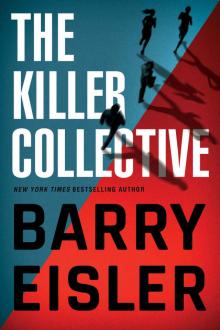 The Killer Collective
The Killer Collective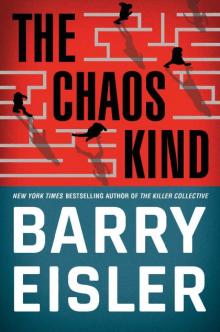 The Chaos Kind
The Chaos Kind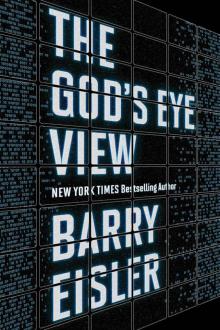 The God's Eye View
The God's Eye View Paris is a Bitch
Paris is a Bitch The Khmer Kill: A Dox Short Story (Kindle Single)
The Khmer Kill: A Dox Short Story (Kindle Single)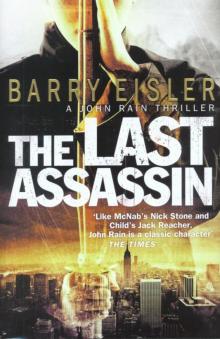 The Last Assassin
The Last Assassin The Detachment
The Detachment The Night Trade (A Livia Lone Novel Book 2)
The Night Trade (A Livia Lone Novel Book 2) Fault Line
Fault Line Hard Rain
Hard Rain The Khmer Kill_A Dox Short Story
The Khmer Kill_A Dox Short Story London Twist: A Delilah Novella
London Twist: A Delilah Novella The Lost Coast
The Lost Coast Rain Fall
Rain Fall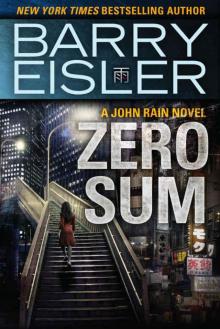 Zero Sum
Zero Sum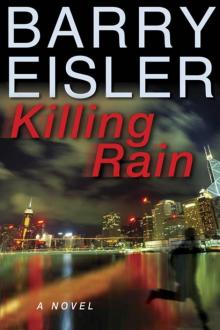 Killing Rain
Killing Rain John Rain 08: Graveyard of Memories
John Rain 08: Graveyard of Memories A Clean Kill in Tokyo (previously published as Rain Fall)
A Clean Kill in Tokyo (previously published as Rain Fall) Inside Out: A novel
Inside Out: A novel John Rain 07 - The Detachment
John Rain 07 - The Detachment Graveyard of Memories
Graveyard of Memories The Lost Coast -- A Larison Short Story
The Lost Coast -- A Larison Short Story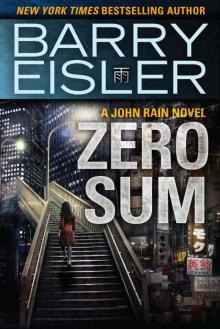 Zero Sum (A John Rain Novel)
Zero Sum (A John Rain Novel)